Issue #255 – Mentor News
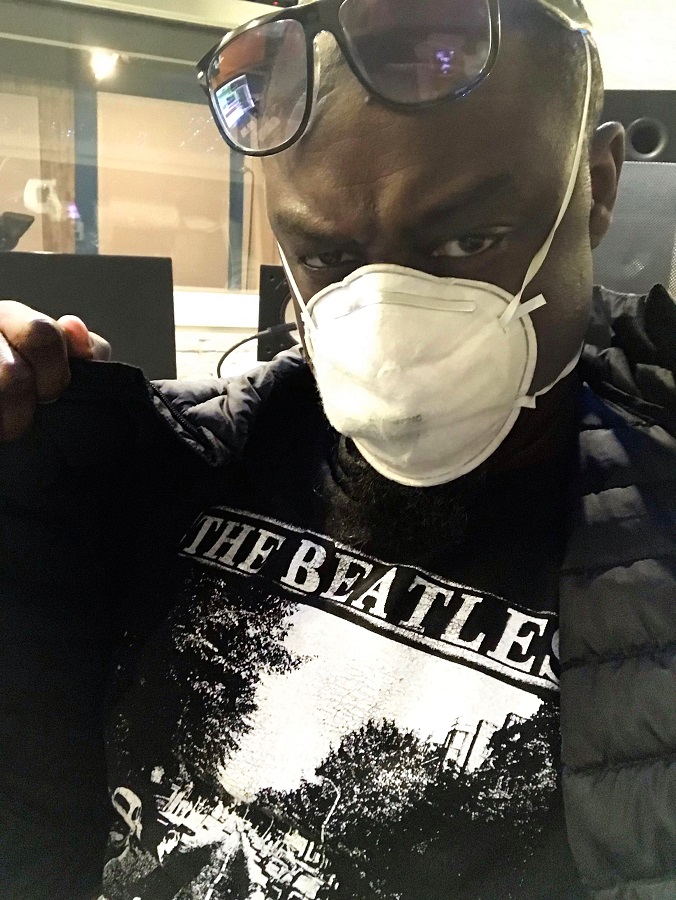
Recording Connection mentor Ira Parker
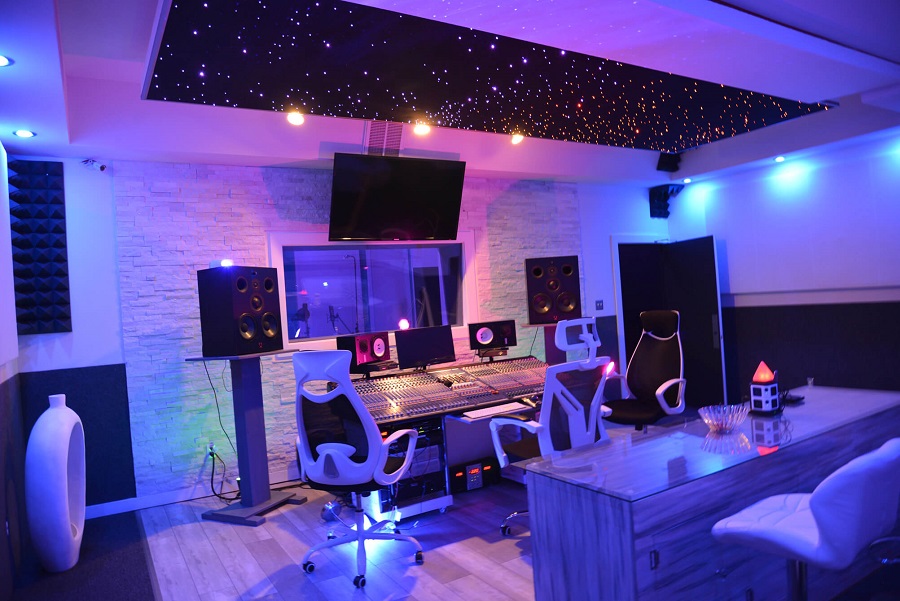
Studio A aka “The Mother Ship” at Maximus Music Records
or call (800) 755-7597
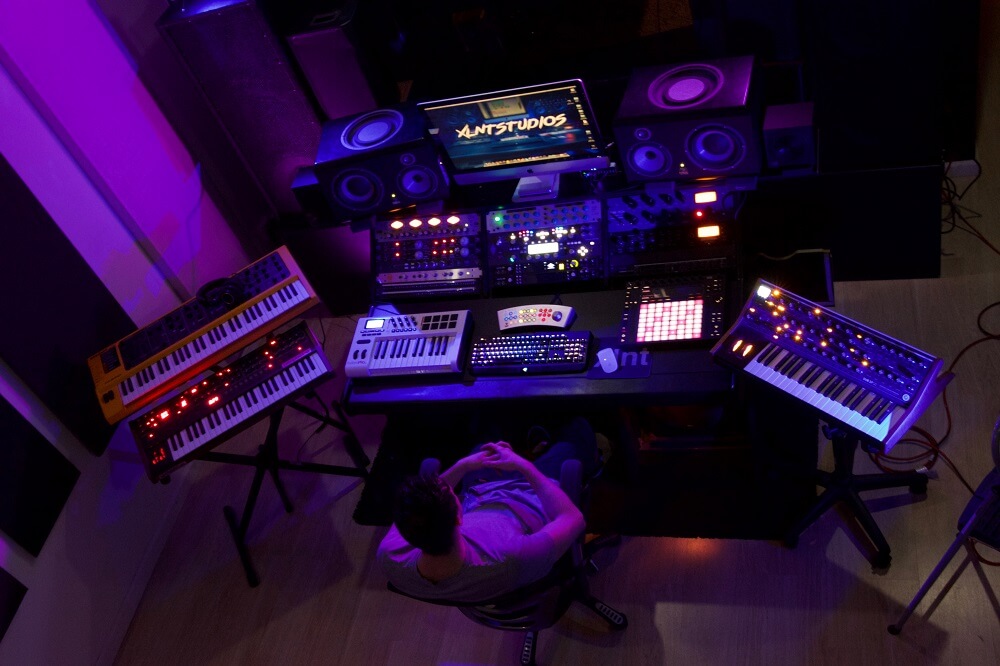
XLNT Studios, Hollywood, CA
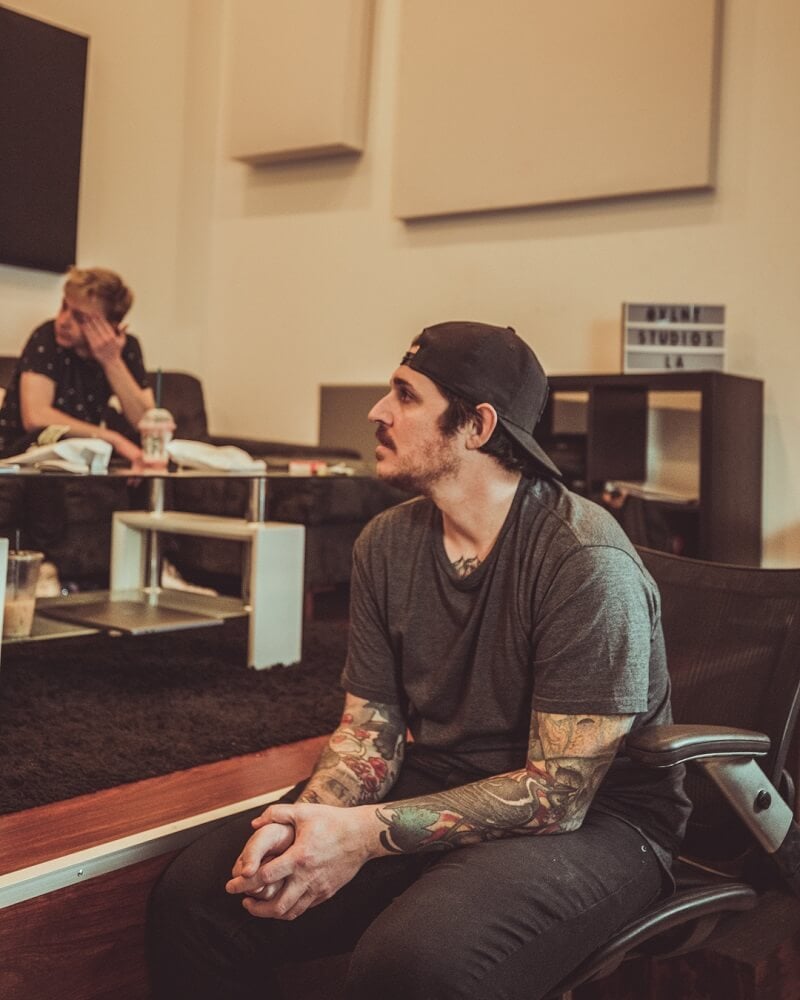
Recording Connection mentor Danny Ferrare
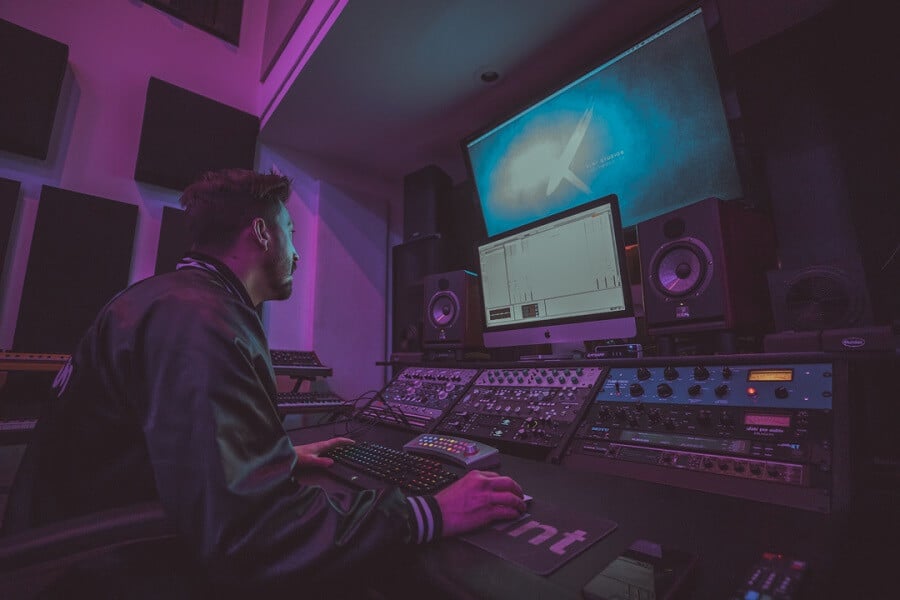
Recording Connection mentor Parker Ament
or call (800) 755-7597
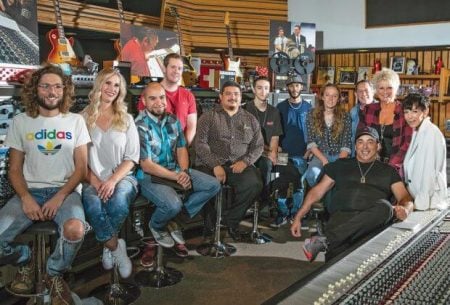
Recording Connection students/grads & Chris Lord-Alge
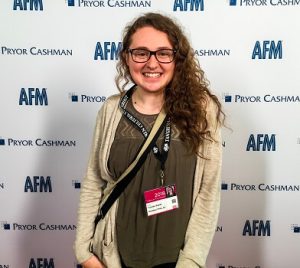
Film Connection grad Cecelia Sayler
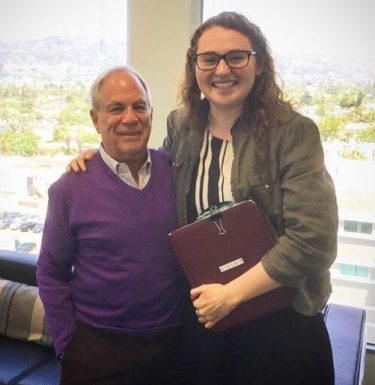
Filmmaker Lenny Shapiro and Cecelia Sayler
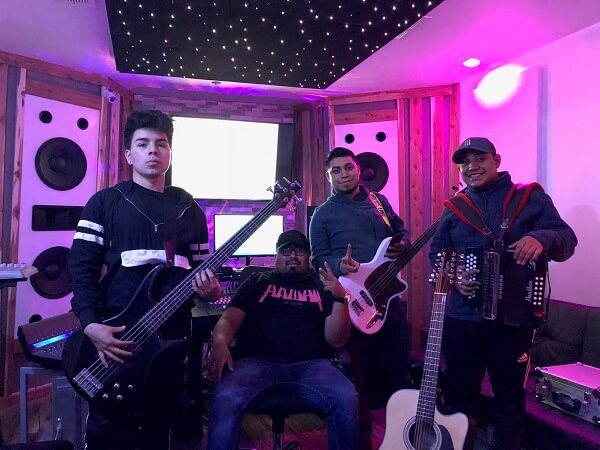
Jose Castrejon (center) with band at Maximus Music
or call (800) 755-7597
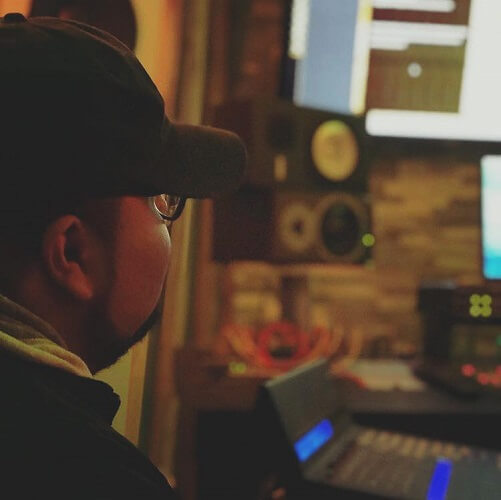 Congrats to Jose Castrejon on finishing Recording Connection’s Advanced Audio Engineering program! Speaking of his experience training with Ira Parker of Maximus Music Records:
“The guys [at Maximus] constantly push you to be better you than the day before…Watching them engineer and mix is one of the best experiences a student can have…The techniques and tips that [were] told in class I constantly applied due to the fact that I got the chance to record a two-track with a rap artist and…a Corridos band with an accordion, bass guitar, twelve string guitar, and two vocalists…Putting the Sony C800G on it and running through an LA2A and an MC77 was crazy! The sound was just extraordinary…All I want to say for future students is if the opportunities are there and you don’t take them that’s your loss…Learn as much as you can, try to be at the studio as much as you can, help around because gaining your mentor’s trust is one of the best things life can hand you.”
Congrats to Jose Castrejon on finishing Recording Connection’s Advanced Audio Engineering program! Speaking of his experience training with Ira Parker of Maximus Music Records:
“The guys [at Maximus] constantly push you to be better you than the day before…Watching them engineer and mix is one of the best experiences a student can have…The techniques and tips that [were] told in class I constantly applied due to the fact that I got the chance to record a two-track with a rap artist and…a Corridos band with an accordion, bass guitar, twelve string guitar, and two vocalists…Putting the Sony C800G on it and running through an LA2A and an MC77 was crazy! The sound was just extraordinary…All I want to say for future students is if the opportunities are there and you don’t take them that’s your loss…Learn as much as you can, try to be at the studio as much as you can, help around because gaining your mentor’s trust is one of the best things life can hand you.”
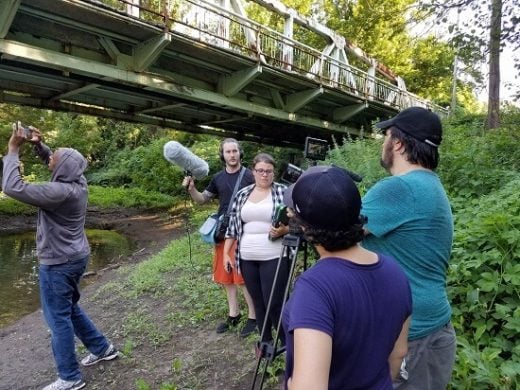 Film Connection student Mike Whitehead who trains with mentor Rocco Michaluk at Rocco Films is glad to be getting some hands-on experience prior to starting production on his own upcoming project:
“Wrapped up production with last day/night of shooting for “A Life Worth Living.” Assisted with usual tasks as well as learned a few quick tips on the fly, including lighting and setting up camera tripod rails and sandbags. [I] also got to fill in as an extra for a brief scene. Thankful for this opportunity to be introduced to the [short] filmmaking process, and get my feet wet in anticipation for my potential short film.”
Film Connection student Mike Whitehead who trains with mentor Rocco Michaluk at Rocco Films is glad to be getting some hands-on experience prior to starting production on his own upcoming project:
“Wrapped up production with last day/night of shooting for “A Life Worth Living.” Assisted with usual tasks as well as learned a few quick tips on the fly, including lighting and setting up camera tripod rails and sandbags. [I] also got to fill in as an extra for a brief scene. Thankful for this opportunity to be introduced to the [short] filmmaking process, and get my feet wet in anticipation for my potential short film.”
or call (800) 755-7597
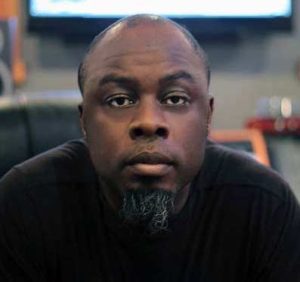 With more than 20 years of experience and hundreds of recording projects to his credit, Recording Connection mentor Ira Parker is a solid industry veteran to say the least. As founder of Maximus Music Records in Charlotte, NC, Ira works with a wide range of clients, and in the process he goes the extra mile to make sure his students get a full range of experience. Not just satisfied to teach the fundamentals, Ira also is passionate about helping students learn how to convey themselves professionally and to network in order to get clients. In the following interview, Ira offers some key advice on that topic, shares his secrets on staying inspired—and even brags on a few of his students along the way! Enjoy!
With more than 20 years of experience and hundreds of recording projects to his credit, Recording Connection mentor Ira Parker is a solid industry veteran to say the least. As founder of Maximus Music Records in Charlotte, NC, Ira works with a wide range of clients, and in the process he goes the extra mile to make sure his students get a full range of experience. Not just satisfied to teach the fundamentals, Ira also is passionate about helping students learn how to convey themselves professionally and to network in order to get clients. In the following interview, Ira offers some key advice on that topic, shares his secrets on staying inspired—and even brags on a few of his students along the way! Enjoy!
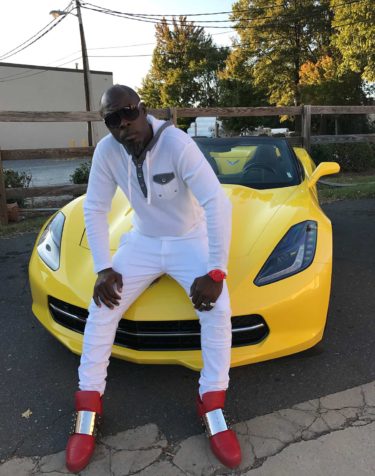 RRFC: How do you stay inspired? It seems like for creatives who work professionally, we have to measure our own level of interest and inspiration and know how to keep that well full.
Ira: Right…The thing is how do you keep the flair and fire going? I do weird things…[For example,] if I want an adrenaline rush and I need it on a track, I’ll [rent] a Corvette Stingray, dual exhaust turbo, like something dumb, and I will drive that thing for the weekend and just keep revving the engine, and it gives me ideas. It’s just the feeling in the drive, the rush, it makes me feel that adrenaline, and I’ll take my ideas on my phone and I go to the studio and I put that record down. I’ll start the beat and then I’ll go somewhere.
RRFC: Can you tell us about some of your students and recent grads that have stood out to you?
Ira: Absolutely. Wes Hagy—cool dude. Totally cool guy. Really great. The clients loved him here…The cool thing about Wes, Wes did the program here in North Carolina…We even hired him for a couple small jobs, and he got so inspired he moved to the West Coast. He moved to LA and he’s starting up his own studio out that way and doing production… Julia [Putintsev] is very outgoing…I think it’s super awesome that females get involved in the industry, and I don’t think there should be any type of waiver because she’s a female. I think females are just as great as dudes, and everybody has a great opportunity. I don’t see it any other way, and what she was dealing with at the time was her friends were kind of doubting her because she wanted to do music, and, “Girls don’t do stuff like that,” and I’m like, “Dude, are you serious? Yes they do.” And she was telling them the same thing. So what did she do? She got herself a new set of friends like I told her, and she came in here with her heart, her mind, and her soul like, “I’m going to do this, I’m going to be one of the baddest females ever to step into this business.”… Daniel Katan, which actually I’ve really taken a liking to, and I’m literally training him on my own…I’ve taken him under my wing along with doing the master’s program and training him also in studio management and everything, because he has a background as a financial advisor before he even got into this, and he’s really a good people person, and I need that type of spirit…Chris Hancock is every day going, “When can I come in? When can I come in?” I’ll get questions at all times of the day, all times of the night. I’m really busy but I love the fact that he’s eager to throw questions out, and he always listens particularly a bit closer than everybody else…I’m fond of all of them…Some of them stick out more than others by the questions they ask, the stuff I don’t think they’re picking up, and they pick up on it and drill me on it later…that type of eagerness is exciting because I know you’re learning. I know that the program for the Recording Connection works. I think it’s a wonderful program.
RRFC: How do you stay inspired? It seems like for creatives who work professionally, we have to measure our own level of interest and inspiration and know how to keep that well full.
Ira: Right…The thing is how do you keep the flair and fire going? I do weird things…[For example,] if I want an adrenaline rush and I need it on a track, I’ll [rent] a Corvette Stingray, dual exhaust turbo, like something dumb, and I will drive that thing for the weekend and just keep revving the engine, and it gives me ideas. It’s just the feeling in the drive, the rush, it makes me feel that adrenaline, and I’ll take my ideas on my phone and I go to the studio and I put that record down. I’ll start the beat and then I’ll go somewhere.
RRFC: Can you tell us about some of your students and recent grads that have stood out to you?
Ira: Absolutely. Wes Hagy—cool dude. Totally cool guy. Really great. The clients loved him here…The cool thing about Wes, Wes did the program here in North Carolina…We even hired him for a couple small jobs, and he got so inspired he moved to the West Coast. He moved to LA and he’s starting up his own studio out that way and doing production… Julia [Putintsev] is very outgoing…I think it’s super awesome that females get involved in the industry, and I don’t think there should be any type of waiver because she’s a female. I think females are just as great as dudes, and everybody has a great opportunity. I don’t see it any other way, and what she was dealing with at the time was her friends were kind of doubting her because she wanted to do music, and, “Girls don’t do stuff like that,” and I’m like, “Dude, are you serious? Yes they do.” And she was telling them the same thing. So what did she do? She got herself a new set of friends like I told her, and she came in here with her heart, her mind, and her soul like, “I’m going to do this, I’m going to be one of the baddest females ever to step into this business.”… Daniel Katan, which actually I’ve really taken a liking to, and I’m literally training him on my own…I’ve taken him under my wing along with doing the master’s program and training him also in studio management and everything, because he has a background as a financial advisor before he even got into this, and he’s really a good people person, and I need that type of spirit…Chris Hancock is every day going, “When can I come in? When can I come in?” I’ll get questions at all times of the day, all times of the night. I’m really busy but I love the fact that he’s eager to throw questions out, and he always listens particularly a bit closer than everybody else…I’m fond of all of them…Some of them stick out more than others by the questions they ask, the stuff I don’t think they’re picking up, and they pick up on it and drill me on it later…that type of eagerness is exciting because I know you’re learning. I know that the program for the Recording Connection works. I think it’s a wonderful program.
or call (800) 755-7597
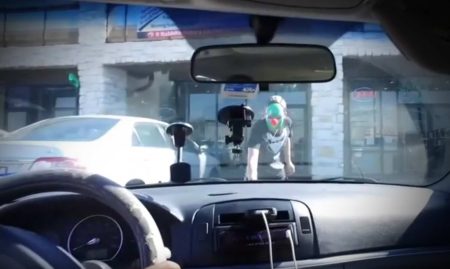
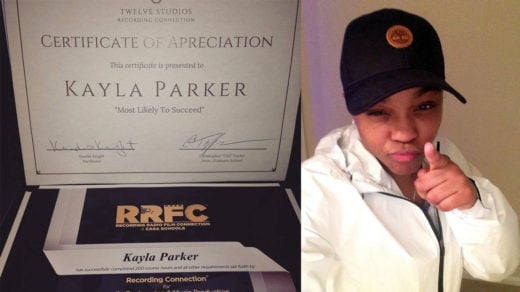 Recording Connection student Kayla Parker was recently got quite the surprise when she went into her mentor’s studio, Twelve Studios, to attend an awards reception and show her support for all the producers, engineers, and staff that make it happen. “I’m not a tall woman so I’m easily swallowed up by a room full of tall men,” she says. “Suddenly, I hear ‘Kayla Parker, is she still here?’ My mentor and advisor Christopher ‘CAT’ Taylor and Kandice Knight, alongside Twelve’s owner Dina Marto, presented me with the Most Likely to Succeed Award! I was in total awe.” Congrats Kayla! We believe in you!
Recording Connection student Kayla Parker was recently got quite the surprise when she went into her mentor’s studio, Twelve Studios, to attend an awards reception and show her support for all the producers, engineers, and staff that make it happen. “I’m not a tall woman so I’m easily swallowed up by a room full of tall men,” she says. “Suddenly, I hear ‘Kayla Parker, is she still here?’ My mentor and advisor Christopher ‘CAT’ Taylor and Kandice Knight, alongside Twelve’s owner Dina Marto, presented me with the Most Likely to Succeed Award! I was in total awe.” Congrats Kayla! We believe in you!
or call (800) 755-7597
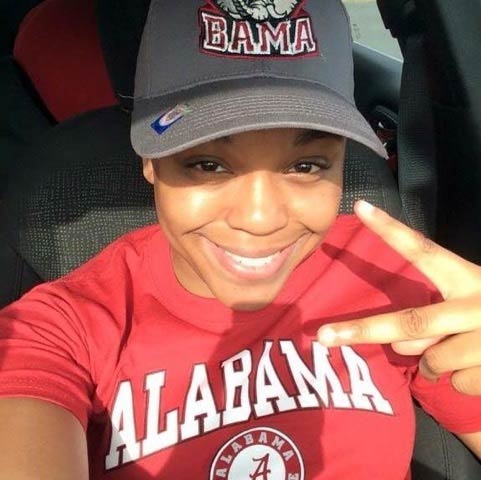 If you ask Recording Connection student Kayla Parker about her five-year goal, her answer is simple: “Grammys.”
Indeed, Kayla has been intent on a music career since childhood. “I grew up singing in the church,” she says. “My aunt was the choir director, my cousins were the directors of music. I just grew up in the church, in a musically inclined family. Gospel singers, hip-hop artists, and so on, it just comes natural to me…. I always wrote music, since the age of 10.”
So serious was Kayla about music, in fact, that after graduating high school, she registered with ASCAP, formed a business entity, and made a move with her mom from Huntsville, AL to Atlanta, GA to become part of the Atlanta music scene. Even before moving, Kayla says the Recording Connection’s hands-on studio training was on her radar and part of her strategy.
“I actually wanted to do it when I was in high school,” she says. “I really came into the Recording Connection initially to learn techniques, and to actually get hands-on work inside the music business that I wasn’t getting…I initially came into the Recording Connection to really learn audio engineering from some of the music’s best.”
Before she knew it, Kayla had been paired with Twelve Music Group in heart of Midtown Atlanta, to be mentored by head engineer Christopher “Cat” Taylor.
“When I first went in,” she says, “I went with my mother, my mother tagged along with me. It went very good, because Twelve is more like family, and I like that. So I knew right off the bat that I liked Twelve as the studio that I would like to go with, and it just took off.”
Kayla says her mother was impressed too. “She actually screamed all the way home from the studio,” she says.
Since starting her apprenticeship, Kayla says she’s already acquired a deeper understanding of the production process. “I knew the basics just from working in the studio when I was younger, and YouTube,” says Kayla. “But until you actually go in, actually doing it yourself in a setting like Twelve, you feel like you totally didn’t know what you were doing before….Learning how to work the soundboards as well as working it on the computer in Pro Tools is very important, and I had no clue of how to do that before. I’d seen it done, but I didn’t know how to do it myself.”
Kayla has also had the opportunity to learn work flow in sessions with talent that comes to work in the studio, such as producer Powlow da Don (Rihanna, Ciara) and Grammy-winning engineer Caveman (Ashanti).
“There’s a rapper here called Roscoe Dash,” she says. “He’s working on his mixtape right now, and I’ve seen how he stacked all his tracks together. And it’s so many tracks. And when you play it, it sounds like something totally different than what you envisioned. Caveman and Chris tell me all the time that your engineering ear is very important, because it’s not what you see, it’s what you hear.”
As for being female in a studio environment long considered to be male-dominant, Kayla takes things in stride. “The majority of the time, if you produce good work and focus on what you need to focus on, then you won’t have any trouble,” she says. “They’ll treat you just like one of the guys. As long as your work ethic is great, you’ll get great results.”
Now settling into her studies, Kayla is excited to have her foot in the door of the Atlanta music scene, and is already applying what she’s learning to her own hip-hop/R&B sound. “My goal is to try to do as much as possible,” she says, “but my main goal is to focus on producing my sound, as far as controlling my sound more and developing my sound. I would love to work with other artists as well. That way I can still do what I do as far as audio engineering, but also do it with other artists, more than just myself.”
From what we can see, Kayla is well on her way.
If you ask Recording Connection student Kayla Parker about her five-year goal, her answer is simple: “Grammys.”
Indeed, Kayla has been intent on a music career since childhood. “I grew up singing in the church,” she says. “My aunt was the choir director, my cousins were the directors of music. I just grew up in the church, in a musically inclined family. Gospel singers, hip-hop artists, and so on, it just comes natural to me…. I always wrote music, since the age of 10.”
So serious was Kayla about music, in fact, that after graduating high school, she registered with ASCAP, formed a business entity, and made a move with her mom from Huntsville, AL to Atlanta, GA to become part of the Atlanta music scene. Even before moving, Kayla says the Recording Connection’s hands-on studio training was on her radar and part of her strategy.
“I actually wanted to do it when I was in high school,” she says. “I really came into the Recording Connection initially to learn techniques, and to actually get hands-on work inside the music business that I wasn’t getting…I initially came into the Recording Connection to really learn audio engineering from some of the music’s best.”
Before she knew it, Kayla had been paired with Twelve Music Group in heart of Midtown Atlanta, to be mentored by head engineer Christopher “Cat” Taylor.
“When I first went in,” she says, “I went with my mother, my mother tagged along with me. It went very good, because Twelve is more like family, and I like that. So I knew right off the bat that I liked Twelve as the studio that I would like to go with, and it just took off.”
Kayla says her mother was impressed too. “She actually screamed all the way home from the studio,” she says.
Since starting her apprenticeship, Kayla says she’s already acquired a deeper understanding of the production process. “I knew the basics just from working in the studio when I was younger, and YouTube,” says Kayla. “But until you actually go in, actually doing it yourself in a setting like Twelve, you feel like you totally didn’t know what you were doing before….Learning how to work the soundboards as well as working it on the computer in Pro Tools is very important, and I had no clue of how to do that before. I’d seen it done, but I didn’t know how to do it myself.”
Kayla has also had the opportunity to learn work flow in sessions with talent that comes to work in the studio, such as producer Powlow da Don (Rihanna, Ciara) and Grammy-winning engineer Caveman (Ashanti).
“There’s a rapper here called Roscoe Dash,” she says. “He’s working on his mixtape right now, and I’ve seen how he stacked all his tracks together. And it’s so many tracks. And when you play it, it sounds like something totally different than what you envisioned. Caveman and Chris tell me all the time that your engineering ear is very important, because it’s not what you see, it’s what you hear.”
As for being female in a studio environment long considered to be male-dominant, Kayla takes things in stride. “The majority of the time, if you produce good work and focus on what you need to focus on, then you won’t have any trouble,” she says. “They’ll treat you just like one of the guys. As long as your work ethic is great, you’ll get great results.”
Now settling into her studies, Kayla is excited to have her foot in the door of the Atlanta music scene, and is already applying what she’s learning to her own hip-hop/R&B sound. “My goal is to try to do as much as possible,” she says, “but my main goal is to focus on producing my sound, as far as controlling my sound more and developing my sound. I would love to work with other artists as well. That way I can still do what I do as far as audio engineering, but also do it with other artists, more than just myself.”
From what we can see, Kayla is well on her way.
or call (800) 755-7597
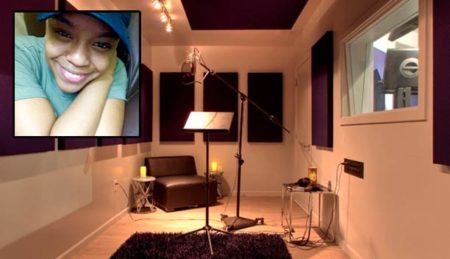 Recording Connection student Kayla Parker (Atlanta, GA) has been having a whirlwind of a time at Twelve Music Group: “I’m just in disbelief at all the opportunities the Recording Connection has already provided me…The main thing I take away from Twelve every single time is to never limit yourself and always continue to grow [and] that the people around you are just as important to your career as your actual music is. How you nurture each relationship will determine how successful you are…I have been working with two of my mentors; both have taught me so much so far. My second mentor is Rondal “Caveman” Rosario… He has one Grammy under his belt with singer/songwriter Ashanti for the song titled “Rain On Me.” With his experience, combined with my main mentor “CAT” [Chris Taylor], I am learning so much words can’t even describe. I am looking forward to everything that’s about to take place.”
Recording Connection student Kayla Parker (Atlanta, GA) has been having a whirlwind of a time at Twelve Music Group: “I’m just in disbelief at all the opportunities the Recording Connection has already provided me…The main thing I take away from Twelve every single time is to never limit yourself and always continue to grow [and] that the people around you are just as important to your career as your actual music is. How you nurture each relationship will determine how successful you are…I have been working with two of my mentors; both have taught me so much so far. My second mentor is Rondal “Caveman” Rosario… He has one Grammy under his belt with singer/songwriter Ashanti for the song titled “Rain On Me.” With his experience, combined with my main mentor “CAT” [Chris Taylor], I am learning so much words can’t even describe. I am looking forward to everything that’s about to take place.”
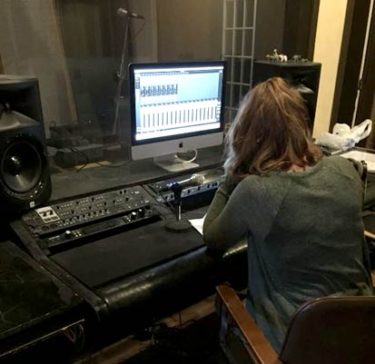 Just weeks into her apprenticeship, Libby Belcher (Amarillo, TX) is getting first hand insight into audio engineering at Animal Kingdom Recordings with her mentor Nick Schmitto: “This week we mixed and mastered several songs for different artists of different genres. I also observed my mentor while he created beats for use in hip hop songs. My mentor is working on my first single as well and showing me all the details that go into making a song from start to finish.”
Just weeks into her apprenticeship, Libby Belcher (Amarillo, TX) is getting first hand insight into audio engineering at Animal Kingdom Recordings with her mentor Nick Schmitto: “This week we mixed and mastered several songs for different artists of different genres. I also observed my mentor while he created beats for use in hip hop songs. My mentor is working on my first single as well and showing me all the details that go into making a song from start to finish.”
or call (800) 755-7597
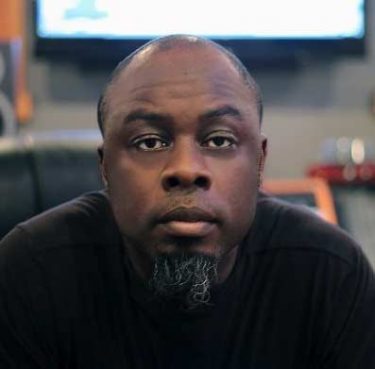
Recording Connection mentor Ira Parker
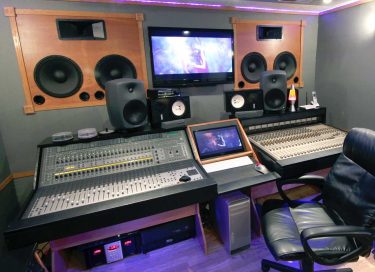
Control Room A in Maximus Music
or call (800) 755-7597
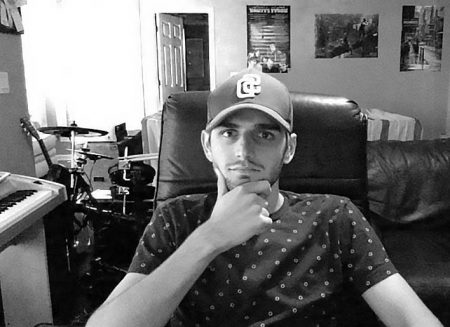
Recording Connection grad Wes Hagy
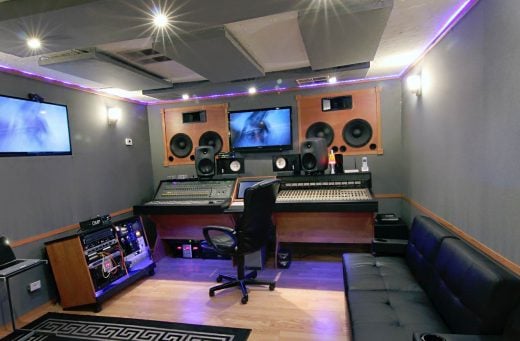
Control Room A in Maximus Music
or call (800) 755-7597